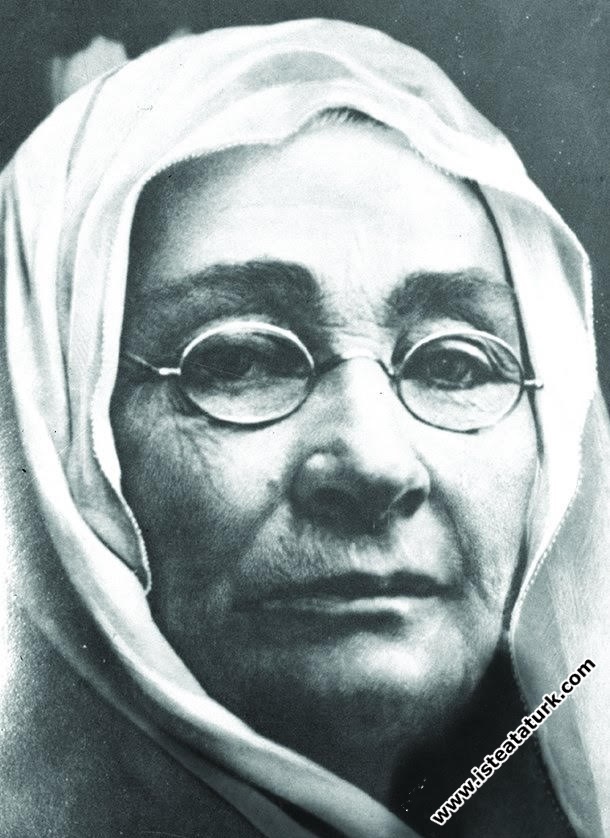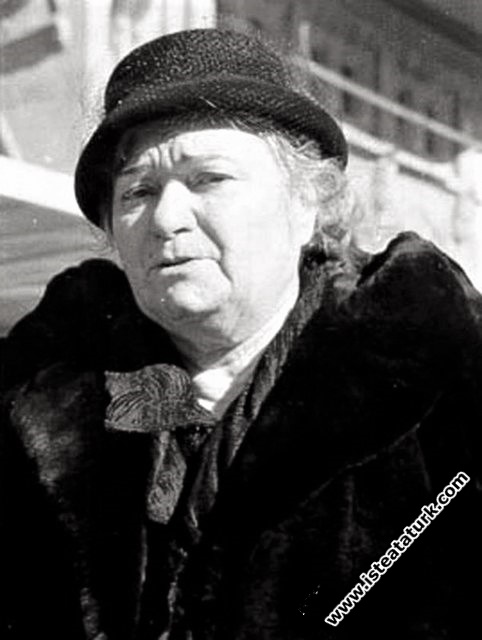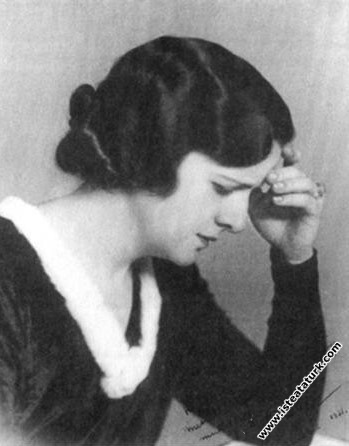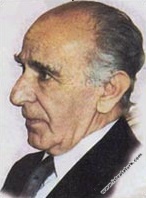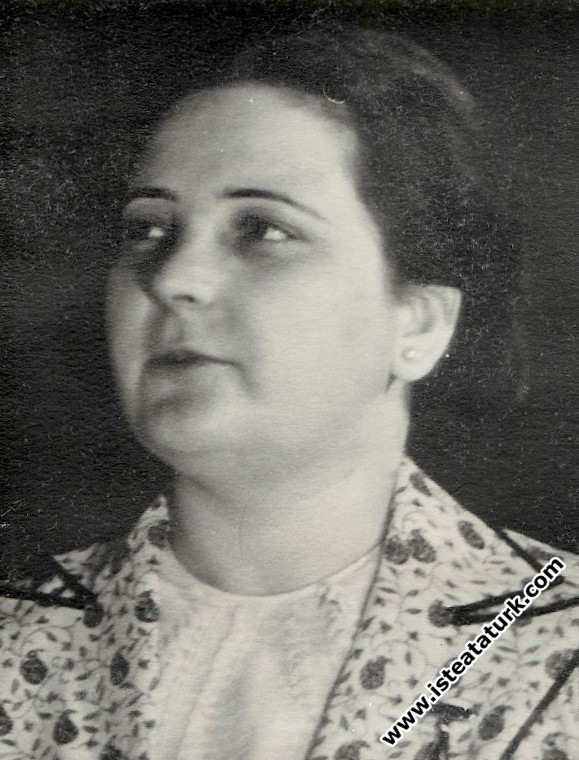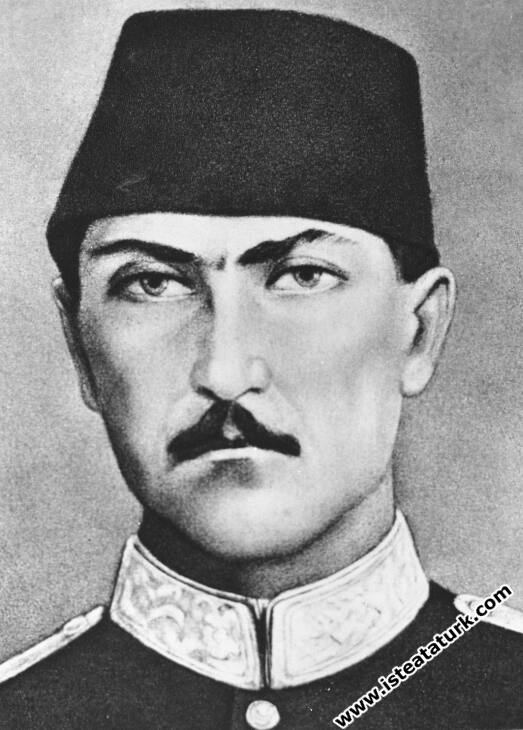
Ali Rıza Efendi (1839-1893)
Character Size
The Life of Ali Rıza Efendi (1839-1893)
THE LIFE OF ALI RIZA EFENDİ
Atatürk's father, Ali Rıza Efendi, was born in Thessaloniki in 1839. Ali Rıza Efendi, who we know that he studied at Abdi Hafız School in Thessaloniki and worked as a "second clerk" in the Foundations Administration, later entered the Rüsumat Administration and served as the "Customs Officer". Ali Rıza Efendi's duty as customs guard was in Papazköprü (Çayağzı) of Katerin District, located on the skirts of Mount Olympus, near Thessaloniki. After serving for a few years in this region, which supplies the wood and charcoal needs of Thessaloniki and its surroundings and even Istanbul, he also leaves Rüsumat. The deterioration of public order in this region and the continuous raids of Greek gangs played a role in his separation. Ali Rıza Efendi, who was newly married in those years, wanted to save his wife from this messy environment. It is known that his duty here continued from the 1870s until the years 1880-1881. According to these dates, Ali Rıza Efendi was in this position in Çayağzı at the time of his marriage and when Mustafa Kemal was born. As a matter of fact, Zübeyde Hanım, talking about the days when Mustafa Kemal was born, says, “At that time, Ali Rıza Efendi's civil service was in Çayağzı around Thessaloniki, some nights he did not come home.”
As a result of research on a photograph seized in 1935 and identified as belonging to Ali Rıza Efendi, we learn that he served in the "Asakir-i Milliye Battalion" in Thessaloniki between 1876-1877 with the rank of "First Mülazım" and First Lieutenant. The “Thessaloniki Asakir-i Milliye Battalion”, of which he was a member, is one of the “volunteer battalions” established with the initiatives of Midhat Pasha, who was the President of the Council at the beginning of the 1876 Ottoman-Serbian War. Namık Kemal and Ziya Pasha were among those who supported the idea of forming such a force to assist the army with the participation of volunteers from the public.
After the first movement started in Istanbul, volunteers from the civil servants and the people in Thessaloniki requested weapons from the government in order to establish a battalion under the name of “Nation Soldier” and prepare for war. It was thought that bringing this battalion, which had a successful education, to Istanbul would encourage the people, and the battalion, including Ali Rıza Efendi, arrived in the capital on 24 December 1876 with the Orhaniye Battleship. The battalion, which was welcomed with a great ceremony, made an official parade in front of Midhat Pasha and was hosted in the Süleymaniye Barracks. Ali Rıza Efendi is a First Lieutenant in the second division of this battalion. Ali Rıza Efendi had the “Asakir-i Milliye” conduct military exercises in the Islahhane District of Thessaloniki, in Emir Bostan and in the courtyard of the Numan Pasha Mosque. This battalion later II. It was abolished by Abdulhamid before the result of the Ottoman-Russian War of 1877-1878.”
Ali Rıza Efendi resigned from his duty in the Rusumat Administration after 1881. He is thrown into the lumber trade. According to Kütahya Deputy Hacı Mehmet Somer, who knew Atatürk's childhood friend and his father, Ali Rıza Efendi's involvement in the timber trade was influenced by the merchants he met while he was in Çayağzı and saw that they were making good money. Ali Rıza Efendi, who started his business life by putting some money in his hand and establishing a partnership with Cafer Efendi, was making good money at first. But later on, his business broke down. The reason for this was the “Greek bandits” who demanded tribute. Hacı Mehmet Somer describes this situation as follows:
“Ali Rıza Efendi gave all he had to the timber trade. This attempt, which had great success at first, provoked the greed of the thugs, Katerin's eternal scourge. They threatened Ali Rıza Efendi to send money. If he doesn't send money. They said they would burn their timber. For this reason, it was not possible to go to the forest zone and control their work. He was afraid to transport the processed timber to the beach. Because these timbers were hostage for the bandits. Finally, when the money they hoped for did not come from Ali Rıza Efendi, they burned all the timbers. They also threatened the workers. The workers also dispersed. Thereupon, Ali Rıza Efendi tried to save what was possible, as if he was stealing goods from the fire."
“The bandits here were all political gangs. With the abandonment of Thessaly to Greece in 1298 (1883), the Greek border was based on the town of Catherine and the Olympos mountains. It was all about that. After the Russian war of 1877, Macedonia was full of gangs, and the Turks were no longer comfortable. Because of these political gangs, Ali Rıza Efendi's trade was also disrupted.”
After mentioning that her father's business deteriorated as a result of the activities of the Greek brigands, Makbule Hanım tells that she started the salt trade and that the salt in her store was melted in bulk, she was wasted in this job, she wanted to become a civil servant again, and she could not succeed in this either.
After leaving the civil service, Ali Rıza Efendi, whose every commercial activity ended in failure in this way, was very affected by these events and became embittered with a great moral depression and fell ill with a serious illness. Zübeyde Hanım describes these developments in her memoirs as follows: “She was very upset that the deceased's job went bad in his last days. He released himself. Afterwards, the dervish became dissolute and melted away. My husband's illness grew and he would no longer live.”37 According to the statements of Ms. Makbule, Ali Rıza Efendi “was very upset that his affairs were going badly... Finally, he contracted intestinal tuberculosis. He passed away after suffering from sickness for three years…”
Different dates are given regarding the date of death of Ali Rıza Efendi. In his memories of Mustafa Kemal, without giving a date, “...I was enrolled in Şemsi Efendi School. A short time later, my father passed away,” he says. His sister Makbule Hanım, on the other hand, tells in her memoirs that when she was born (1885), her father's illness started, that she could not go to work, that her illness became very severe when she reached her first age, and that her father passed away when her youngest sister Naciye (born: 1889) was forty days old.
In this case, Ali Rıza Efendi's death must have coincided with the first months of 1899 or 1990. Mustafa Kemal is also in his ninth year at that time. And he is in the third year of Şemsi Efendi School. Afet Inan said, "Mustafa was orphaned from his father at primary school age"; Ali Fuat Cebesoy also writes that “Mustafa Kemal was 9-10 years old when his father died”.
Despite the information obtained from all these memories, Faik Reşit Unat states that Ali Rıza Efendi died on 28 November 1893. Without publishing the document, FR Unat cites the documents in the file regarding the fact that Makbule Hanım was given a pension from her father after she broke up with her first husband. When Mustafa Kemal's entrance to Manastır Military High School is taken into consideration when going backwards on March 13, 1896, the time he spent at the Military High School, Civil High School and the farm for about four and a half months; It is highly probable that the date determined by Faik Reşit Unat is correct. Therefore, if we accept Ali Rıza Efendi's death as 1893, he is 54 years old and Mustafa Kemal is 12 years old when his father passed away.
Dr. Ali Güler
Source: ATATÜRK ARAŞTIRMA MERKEZİ DERGİSİ, Sayı 45, Cilt: XV, Kasım 1999
